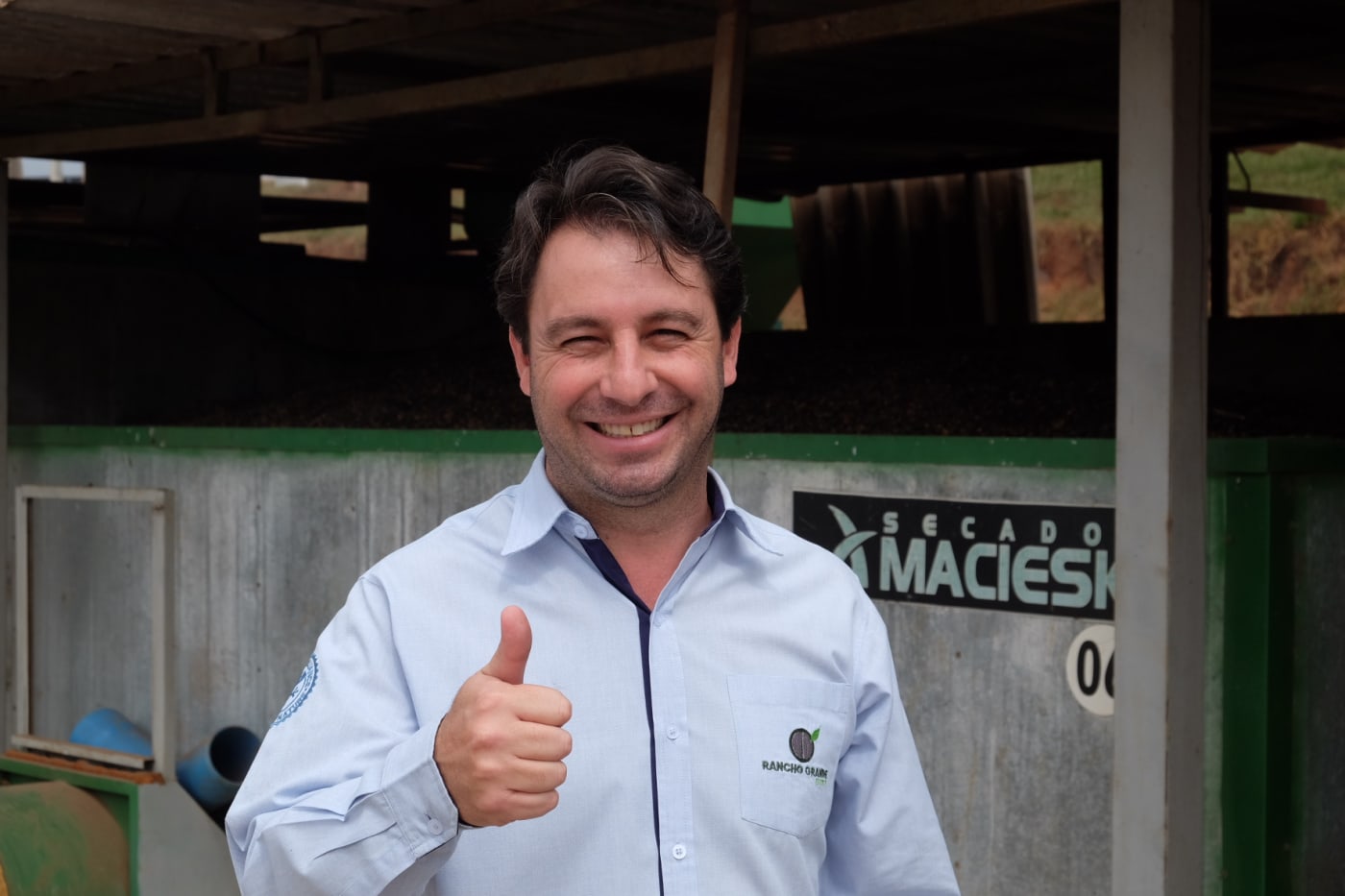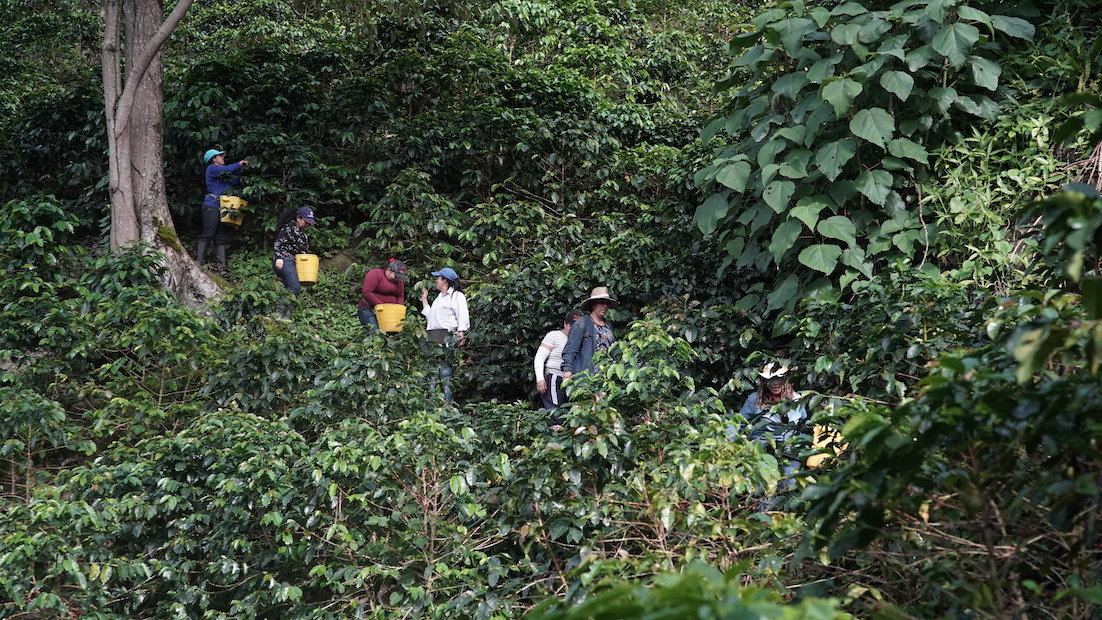It all began at Fazenda Reis, in 1933, when Aneite Reis inherited five hectares of land in Três Pontas, Brazil. Things have moved on an awful lot since then, and the farm, now run by his son, José Carlos Reis, and grandson, Flávio ‘Fafa’ Reis, is at the forefront of the boundary-breaking side of the coffee industry.
The ‘natural’ process is the world’s oldest, most traditional approach to making coffee from the fruit produced by coffee plants. It’s done, by definition, by laying coffee cherries out to dry with the outer fruit and mucilage surrounding the coffee beans.
When this happens, the cherries begin to ferment and give some of their sweetness and flavour to the coffee cherries. The cherries need to be turned regularly to avoid the risk of unsavoury moulds, which can be tricky. But when it’s done well, it creates a deliciously sweet, full-bodied cup.
Today, some 90 years after his grandfather planted the first trees, Flávio (Fafa to his friends) is taking a pioneering approach to this process rarely seen anywhere else.
In short, he stacks the cherries on top of each other in static boxes, as opposed to laying them out individually, and uses some seriously impressive technology to pump temperature-controlled air through them.
This modifies the fermentation process and creates some fascinatingly complex speciality coffee. In fact, you’ll find a cup like this nowhere else in the world – let alone Brazil.
As a result, he’s won the Taste of Harvest competition three years in a row and a two-star Great Taste Award 2023. Not to mention, he’s renowned in Três Pontas as a phenomenal farmer, and his prestigious neighbours, like Sitio de Jaja, have been quickly taking tips.
Try Fazenda Reis.






